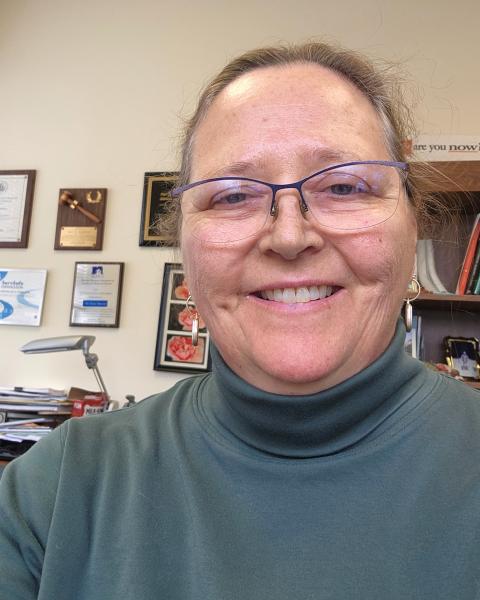Starting a homestead food business is a dream of many home cooks. Beginning small, in your primary home kitchen, with shelf-stable baked goods and other approved foods is a practical way to try out this venture. The place to start is a clean and sanitized kitchen.
Using best management practices for cleaning and sanitizing food contact surfaces is essential for keeping food safe to eat. Implementing routine cleaning and sanitizing procedures will help maintain the safety of food, decrease food spoilage, and may increase your business profits.
Cleaning and Sanitizing Are Not the Same
Sanitizing is the process of decreasing the number of microorganisms to a safe level. Soil, grease, dust, or detergents will decrease sanitizer effectiveness, so it is important to clean and rinse a surface before you sanitize it.

Cleaning
Cleaning is the physical removal of food debris, soil, dust, grease, and microbes from a surface through scrubbing with a detergent solution and then rinsing thoroughly with clean water. Now the surface can be effectively sanitized.
Sanitizing
Sanitizing is the process of decreasing the number of microorganisms to a safe level. Soil, grease, dust, or detergents will decrease sanitizer effectiveness, so it is important to clean and rinse a surface before you sanitize it. Only use sanitizers with labels that state that they are approved for use on food contact surfaces and follow the label instructions for mixing and applying it. The manufacturer label is a good resource when determining whether a specific sanitizer is safe for your operation.
The most common sanitizer used on a home kitchen surface is chlorine (unscented bleach). If you choose to use chlorine, check the label to ensure it is safe for use on food contact surfaces and follow concentration levels exactly. You may also want to consider quaternary ammonium or “quats” tablets for sanitizing, which are dissolved in water according to package directions.
A sanitizing solutions can lose effectiveness over time, so change it frequently. Spray bottles with chlorine solution lose effectiveness after 24 hours.
Disinfectant Residue
Many disinfecting solutions and popular disinfectant wipes leave a residue on surfaces that is NOT food-safe. Follow the disinfectant label directions for rinsing off the surface (if required) before it is used for food preparation.

Cleaning Schedule
Large food business or solo entrepreneur, a cleaning and sanitizing schedule is key for making these critical steps a regular part of your routine. It answers four questions:
- What needs cleaning and sanitizing? Identify tools, equipment, and surfaces.
- When should it be cleaned and sanitized? Does it require daily maintenance or after each use?
- How should it be cleaned and sanitized? Use the best methods for each item.
- Who will clean and sanitize it? You- for solo operators, but if there are any other staff, decide who’s responsible and how to keep track of completed tasks.
This keeps everything safe and ready for use!
For More Information:
NH DHHS Food Protection
dhhs.foodprotection@dhhs.nh.gov, 603-271-4589
https://www.dhhs.nh.gov/programs-services/environmental-health-and-you/food-protection
This work is supported by the Expanding the Reach of New Hampshire's Food Safety Education and FSMA Programs to Include Value Added Processors program, project award number 2018-70020-28876, from the U.S. Department of Agriculture’s National Institute of Food and Agriculture. Any opinions, findings, conclusions, or recommendations expressed in this publication are those of the author(s) and should not be construed to represent any official USDA or U.S. Government determination or policy.
Created: July 2020
Updated: January 2025
Special appreciation to Royann Bossidy of the NH Food Protection Section for her insights and guidance in putting together this fact sheet series.


